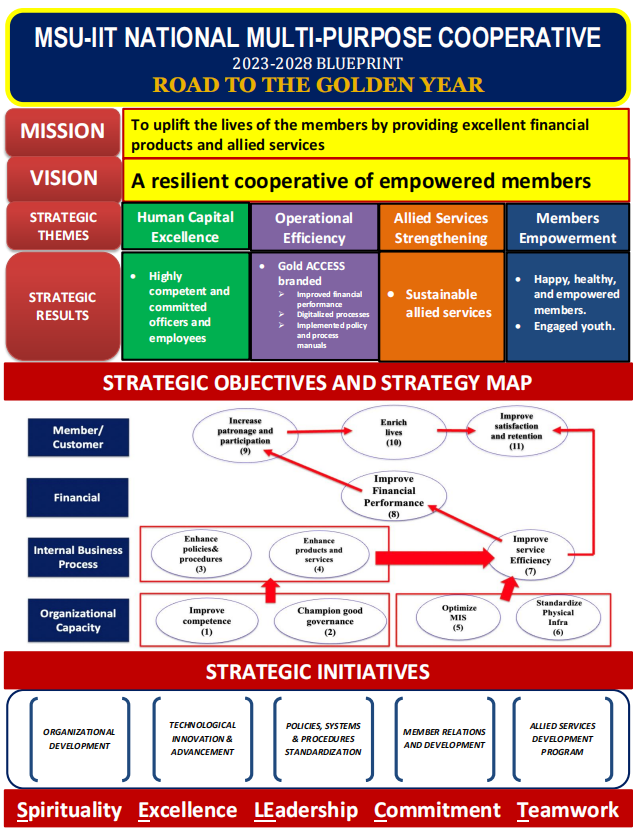


Highlights
ARTICLES OF COOPERATION (PDF)
BY-LAWS OF THE MULTI-PURPOSE COOPERATIVE (PDF)
What is a Cooperative?
A co-operative is an autonomous association of persons united voluntarily to meet their common economic, social, and cultural needs and aspirations through a jointly-owned and democratically-controlled enterprise.
Ranging from small-scale to multi-million dollar businesses across the globe, co-operatives employ more than 100 million women and men (20% more than multinational enterprises combined), and have more than 800 million individual members.
Cooperatives were officially born in 1844 when theRochdale Society of Equitable Pioneers established the Rochdale Principles on which they ran their cooperative, when the basis for development and growth of the modern cooperative movement was established.
The co-operative model of enterprise can be applied to any business activity. They exist in traditional economic sectors such as agriculture, fisheries, consumer and financial services, housing, and production (workers' co-operatives). However, co-operative activity spans to large number of sectors and activities including car-sharing child-care, health and social care, funeral, orchestras and philharmonics, schools, sports, tourism, utilities (electricity, water, gas, etc.), and transport (taxis, buses, etc).
The Cooperative Principles
Cooperatives are based on the values of self-help, self-responsibility, democracy, equality, equity and solidarity. In the tradition of their founders, cooperative members believe in the ethical values of honesty, openness, social responsibility and caring for others.
The co-operative principles are guidelines by which co-operatives put their values into practice.
1st Principle: Voluntary and Open Membership
Co-operatives are voluntary organisations, open to all persons able to use their services and willing to accept the responsibilities of membership, without gender, social, racial, political or religious discrimination.
2nd Principle: Democratic Member Control
Co-operatives are democratic organisations controlled by their members, who actively participate in setting their policies and making decisions. Men and women serving as elected representatives are accountable to the membership. In primary co-operatives members have equal voting rights (one member, one vote) and co-operatives at other levels are also organised in a democratic manner.
3rd Principle: Member Economic Participation
Members contribute equitably to, and democratically control, the capital of their co-operative. At least part of that capital is usually the common property of the co-operative. Members usually receive limited compensation, if any, on capital subscribed as a condition of membership. Members allocate surpluses for any or all of the following purposes: developing their co-operative, possibly by setting up reserves, part of which at least would be indivisible; benefiting members in proportion to their transactions with the co-operative; and supporting other activities approved by the membership.
4th Principle: Autonomy and Independence
Co-operatives are autonomous, self-help organisations controlled by their members. If they enter to agreements with other organisations, including governments, or raise capital from external sources, they do so on terms that ensure democratic control by their members and maintain their co-operative autonomy.
5th Principle: Education, Training and Information
Co-operatives provide education and training for their members, elected representatives, managers, and employees so they can contribute effectively to the development of their co-operatives. They inform the general public - particularly young people and opinion leaders - about the nature and benefits of co-operation.
6th Principle: Co-operation among Co-operatives
Co-operatives serve their members most effectively and strengthen the co-operative movement by working together through local, national, regional and international structures.
7th Principle: Concern for Community
Co-operatives work for the sustainable development of their communities through policies approved by their members.
Cooperative Values
- Self-Help
This value has a dual reference. On one hand, it refers to the individual person and on the other, it refers to the such as a cooperative. Self-Help as a value obligates/ encourages the individual person to satisfy his/her own needs and obligations through personal effort to the extent reasonably possible under the circumstances. An important need obligation is the contribution to the realization of a healthy sustainable community.
This is very important element in achieving human fulfilment. As a corollary, the same reasoning and logic applies to the collective self such as, cooperative. This value obligates/encourages the collective self to satisfy their collective needs and obligation through their own efforts to the extent reasonably possible under the circumstances. It is form this value that the idea flows and each individual member owner of the collective, i.e. cooperative, share the responsibility for the success of the cooperative.
- Self-Responsibility
This value, similar to the previous one, has a dual reference. The individual person is obligated and encouraged by the value to be responsible for his/ her own well-being and to take responsibility for any consequences that flow from whatever he/she does in pursuit of personal need satisfaction. The corollary to this is that the collective self is responsible for its own being and for the consequences that flow from that pursuit.
- Democracy
Democracy is a philosophy or practice of governance in which the people are collectively the repository of authority. The exercise of that authority is democratically legitimate only if the people who will be affected by that exercise are consulted openly and freely. Popular elections in and of themselves do not a democracy make. Free and open discussion, deliberation and consultation are essential preconditions to elections as democratic elements. Of course, that means that the people or members have reasonable access to all information relevant to the decisions respecting the exercise of the authority of which they are the repository.
- Equality
Equality as a value flows from the traditional wisdom that each person, irrespective of talent, skill or appearance possesses an intrinsic value and thus as a human being is of no greater or lesser value than anyone else. Each person is intrinsically valuable, without the attachment of inferiority or superiority. While certain skills and talents may be of greater importance to the well being of a collective, be it a society, community or cooperative each and every person as human being within that collective is of equal value.
This value is particularly pertinent to decision- making and governance of the collective requiring that each person in that collective has a reasonable opportunity to participate in that decision-making and governance. This value is particularly and peculiarly relevant to democracy and democratic governance.
- Equity
This value has two distinct but related meanings. One meaning of this value is an end. The other meaning is that of a means to that end Equity as an end refers to fairness in the relationship between and among individuals and the manner with which authority is exercised over persons. Equity as a means refers to the ownership of property/ assets which persons can protect themselves against exploitation by others, mainly corporate interests.
This value has two distinct but related meanings. One meaning of this value is an end. The other meaning is that of a means to that endEquity as an end refers to fairness in the relationship between and among individuals and the manner with which authority is exercised over persons. Equity as a means refers to the ownership of property/ assets which persons can protect themselves against exploitation by others, mainly corporate interests.
In the cooperative that ownership gives the owner/ member the right to participate in the decision of the cooperative which along with the participation of all the other members/owners of the cooperative, assure each and all of them fairness in their relations with each other an the collective, i.e., the cooperative. It is the equity which provides the owners with the right and opportunity to structure the decision-making and governance process that will assure that fairness is an essential characteristic of the cooperative.
- Solidarity
Solidarity as a value refers to the respect and dignity with which the individual persons of a community relate to one another. It is a relationship that grows out of each person seeing the other as valuable as the self. Solidarity also encompasses the concept of interdependency which is so critical to the health and vitality of the cooperative. Community is an important product of solidarity, or as a corollary, solidarity is an essential characteristic of the successful cooperative.
- Honesty
This value has the quality of both and means. Honesty is good in itself and is a means to other good. Honesty is an important prerequisite to continuing good relations among persons and within collectives such as cooperative. Honesty is both quality of, and a means to, human fulfilment. Truth is a critically important component of rewarding community an collective life. Honesty is the sine qua non for the individual and the collective of individuals experiencing and benefiting from the truth.
- Openness
This value refers to the structure and reasonable availability to the membership of information and knowledge relevant to the successful life of the organization or cooperative. This value presupposes that the governance of the organization is a democracy, hence the membership collective is the repository of the authority ex non for the individual and the collective of individuals experiencing and benefiting from the truth.
- Social-Responsibility
This value is most relevant to the public image which the cooperative enjoys or suffers in the community to which it serves and beyond. On the one hand, it refers to the cooperative accepting responsibility for an ameliorating the negative consequences for society stemming from its action and operations. On the other hand, social responsibility to work towards the betterment of society and towards the amelioration of oppressive conditions in that society.
- Caring for others
Caring for others was and continues to be the prime mover in the establishment of successful cooperative the world over. This value refers to the obligations that each individual co-operator, each cooperative and the cooperative movement as a whole must act in such a way as not to cause harm or difficulty for others either of today, tomorrow or of the distant future. Additionally, this value imposes the obligation and requirement on every element of the cooperative movement to be pro-active in leadership towards rectifying the structural and social causes of oppression and in dignity. This value flows out of the ancient, but nonetheless relevant, dictum: Do unto others what you would have them do unto you.
History
1976-1977
During these years series of orientation seminars about cooperative organization were conducted by then Department of Local Government and Community Development among interested employees of the Institute.
1978
Cash deposits by eager and enthusiastic employees were made through Mr. Roberto A. Dangkulos, who acted as Acting Treasurer. It made an initial bank deposit on March 7, 1978 at then Family Bank (now Bank of Philippines Island (BPI)) of Eighty six pesos and Twenty Centavos (P86.20).
This was also the year when the Vice President Manaros B. Boransing acknowledged and recognized the endeavor of the employees by creating a committee on organizing a credit union chaired by Prof. Edna E. Aberilla.
1979
The MSU-IIT Employees Credit Cooperative, Inc. (MSU-IIT ECCI) was formally organized and had its First General Assembly on January 17, 1979. During this assembly its set of officers was organized led by Prof. Edna E. Aberilla as Chairperson.
Policies were laid down, officers went on various trainings in Cebu, Dumaguete, Cagayan de Oro and attended in house trainings in the Institute with invited resource speakers. All these were made possible with the support and assistance of the institute officials led by Vice Pres. Boransing.
1982
The Bureau of Cooperative Development Office (BCOD), the government agency overseeing cooperative operations approved the organization of the MSU-IIT ECCI as a full-pledged credit cooperative.
It had its first recognition when the Regional Cooperative Development Assistance Office (XII) adjudged MSU-IIT ECCI as the Most Outstanding Regional Cooperative.
1983
It expanded its operations by opening a consumer division which was formally opened in July 1983.
1985
In time for the 7th Annual General Assembly, it had its first amendment of the By-Laws and Articles of Incorporation and renaming it as MSU-IIT Employees Integrated Cooperative, Inc. (MSU-IIT EICI). The amendments were approved by then Regional Cooperative Assistance Office (RCDAO) through RC No. FF-005, dated March 21, 1985.
1986
Recorded its first million of total assets.
1987
Another service was expanded with the opening of Kindergarten School in coordination with the PFWC, catering to the early education of members’ dependents.
1990
After the passage of the twin laws, R.A. No. 6938 – Cooperative Code of the Philippines and R.A. No. 6939 – Creation of the Cooperative Development Authority (CDA), MSU-IIT EICI was highly honored when its first Chairperson, Prof. Edna E. Aberilla, was appointed by President Corazon C. Aquino as the first Chairperson of the Cooperative Development Authority (CDA).
1991
MSU-IIT EICI’s existence was confirmed by the Cooperative Development Authority through the issuance of registration (Cert. No. CR-025-CGY, dated March 22, 1991.
This was also the year when it embarked on a dream project of putting its own building. A memorandum of Agreement was forged between the Mindanao State University and the MSU-IIT EICI, stipulating among others to allow the cooperative the use of 334sqm. Of land at the east gate of the Institute to be utilized for a building of the cooperative. The MOA was likewise confirmed by the MSU Board of Regents in its 144th meeting under BOR Res. No. 75, S. 1991. On August 10, 1991 no less than Senator Agapito ‘Butz’ Aquino led the corner stone laying of the new building.
It was also in the year, that MSU-IIT EICI landed in the pages of the national dailies when it received two national awards as Most Outstanding Cooperative by the Cooperative Union of the Philippines (CUP) and as one of the cooperative finalists of the Sikap Gawa Award by the Bishop-Businessmen’s Conference.
1992
In time for the 14th Annual General Assembly another round of amendments in its Articles of Cooperation and By-laws was approved by the assembly. The amendments made were those provisions to conform with R.A. 6938, as well as an expansion of its membership by accepting dependents of members and MSU-IIT Employees Multi-Purpose Cooperative (MSU-IIT NMPC).
1993
In June 1993, the first floor the MSU-IIT Co-op building was occupied with no less than then Vice Mayor Atenedoro “Dodong” Ruiz leadin the ribbon cutting ceremony.
1994
MSU-IIT NMPC was fortunate to have links with the University Co-ops in Japan wherein their experiences were shared through seminar-workshop type educational undertakings here in Iligan. This started visits by officers to University Co-ops and Consumers Co-op in Japan. Japanese counterparts who shared their experiences with the MSU-IIT NMPC was led by MR. Toshifuni Kuriki, Manager of International Relations of the University Co-ops, Japan.
1995
The Grade School Program was formally launched, and likewise the general assembly gave its nod to expand the services of providing complete elementary education.
1996
Awarded as Regional Most Outstanding Cooperative in Region XII (Non-Agri Category), and adjudged as 1st Runner-Up in the National Search for Outstanding Cooperative.
1999
Through the assistance of MASS-SPECC, an automated package of the financial recording through micro-banker system was established.
2000
The MSU-IIT NMPC for the first time hired a full-time General Manager in the person of Engr. Deal Noel D. Benegrado.
Identified as one of the 10 Co-ops in Mindanao for the Socio-Economic Development through Cooperatives in the Philippines (SEDCOP) Project of MASS-SPECC and NATCCO. The Project envisioned to set standards that are internationally acceptable.
2001
On its Mid-year GA, the general membership amended the by-laws to shift from closed-type to open type cooperative and accepting members outside of MSU-IIT and the Co-op was renamed MSU-IIT Multi-Purpose Cooperative (MSU-IIT NMPC).
2002
Attained as a century asset cooperative status at the close of December 30, 2002 and listed as the No.49 cooperative in the Philippines with century assets.
Likewise, the Grade School program was further upgraded into Cooperative Academy by offering First Year High School classes.
2003
Celebrated its Silver Anniversary. It also opened its first branch at Pala-o, Quezon Avenue Extension, Iligan City on February 18, 2003 to cater to the downtown members. Hon. Franklin M. Quijano led the ribbon cutting ceremony.
Again MSU-IIT NMPC was adjudged Regional Most Outstanding Cooperative – Non-Agri (this time in Region X), and nominee to the national Search for Most Outstanding Award by the Cooperative development Authority.
2004
MSU-IIT NMPC opened a new branch located at Kiwalan, Iligan City.
2005
A new branch was established at Buru-un,Iligan City. Also in this year, MSU-IIT NMPC opened Coop Life Assurance Center (CLAC) which caters life and non-life insurances.
2006
During this year MSU-IIT NMPC opened three satellite offices which were strategically located at Tubod and Poblacion , Iligan City and at Manticao, Misamis Oriental.
2007
Seeing the growth and need of the people for the cooperative, MSU-IIT NMPC opened another new satellite office located at Suarez, Iligan City and another branch at Maranding, Lanao del Norte. Also this year, Tibanga Main has opened their new Savings and Credit office.
2008
MSU-IIT NMPC'S reputation is known even outside areas of Iligan City. Bulua branch was established this year to cater members and community of Cagayan de Oro City. The coop also celebrated its Pearl Anniversary.
2009
A warm welcome was given to our cooperative as we enter CDO Community. MSU-IIT NMPC built its new expansion at Cagayan de Oro which was located at Cogon. Also Tubod and Poblacion Satellite Offices were upgraded to a full-branch status.
2010
Manticao Satellite Office was upgraded to a full branch status. MSU-IIT NMPC launched its health care program called COOP CARE.
2011
Over a decade of being an open-type cooperative, Head Office was transferred to its new home, located at MSU-IIT NMPC Bldg. Quezon Avenue Ext.,Pala-o , Iligan City
2013
Reached 1 Billion Asset
2014
MSU-IIT NMPC subsidiaries:
2015
Dissolved the ARA and started our General Assembly by Cluster
2016
Joined the Regional Programme on Remittances and Diaspora Investment for Rural Development in February. Reached 70,000 regular members
2017
Launching of IIT COOP @40 raffle promo for the ruby anniversary
2018
MSU-IIT NMPC’s RUBY ANNIVERSARY
2019
Reached 2 Billion Asset
2020
Quick covid-19 response to members by giving 60 days moratorium for loans and other payables
2021
Approved Agri-Business at Maranding, Lala, LDN
BOD Members

Staff
HEAD OFFICE
Quezon Avenue, Pala-o, Iligan City
2nd floor MSU-IIT MPC Bldg.
Tel. Nos. (063) 223-5874
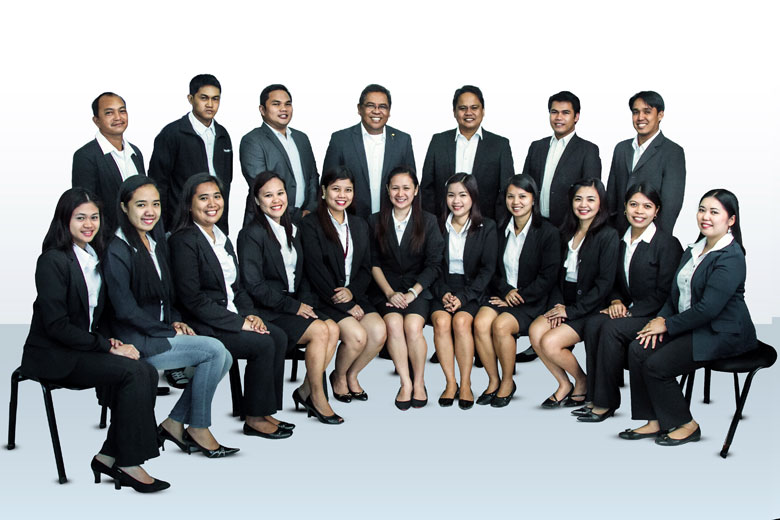
- Tibanga Main Branch
Andres Bonifacio Avenue, Tibanga, Iligan City
Tel. Nos. (063) 221-4063; 221-4064; 225-3889
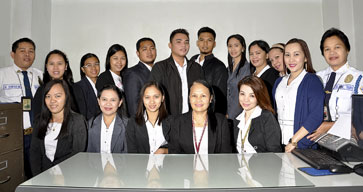
- Pala-o Branch
Quezon Avenue Extension, Pala-o, Iligan City
Tel Nos. (063) 223-2779; 225-4923
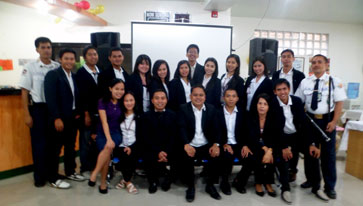
- Kiwalan Branch
Kiwalan Hi-way, Iligan City
Tel. Nos. (063) 225-2701
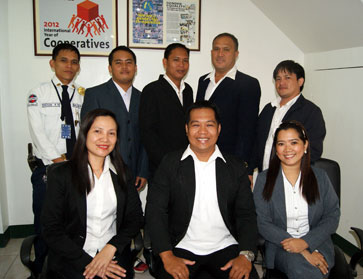
- Buru-un Branch
Buru-un Hi-way, Iligan City
Tel. Nos. (063) 223-8440
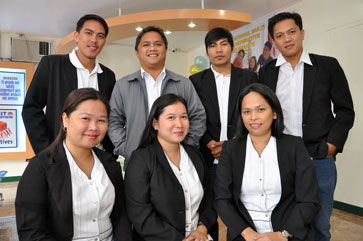
- Maranding Branch
Purok Apitong, Maranding, Lala, Lanao del Norte
Tel. Nos. (063) 388-7376
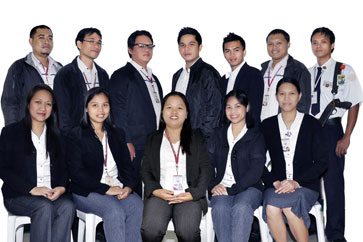
- Tubod Branch
Lanao Builder Bldg., Tubod Hi-way, Iligan City
Tel. Nos. (063) 225-4875
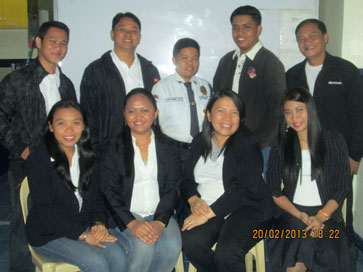
- Poblacion Branch
General Aguinaldo Street, Poblacion, Iligan City
Tel. Nos. (063) 221-0260
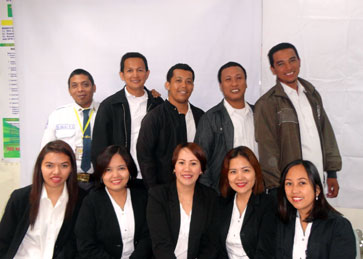
- Bacolod Satellite Purok 1 Poblacion, Bacolod, Lanao del Norte
Tel. No. 227-2223
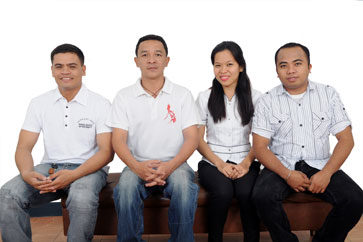
- Coop Life Assurance Center
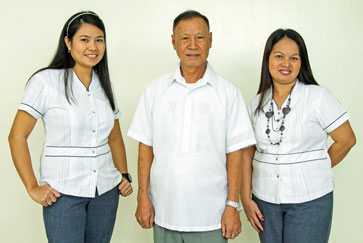
- Property Management Division
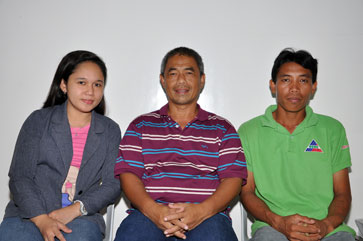
- Cogon Branch
Lt. Guillermo Street, Barangay Cogon, Cagayan de Oro City
Tel. Nos. (088) 310-0730; 852-1040
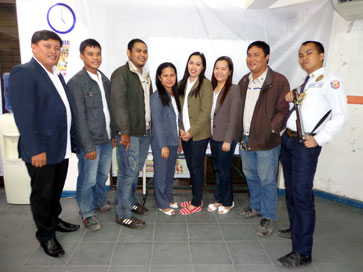
- Carmen Branch
Door #1 Vamenta Bldg., Carmen, Cagayan de Oro City
Tel. Nos. (088) 850-1975
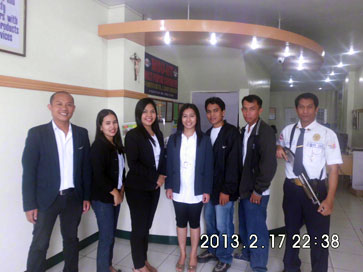
- Puerto Branch
Lot No. 5-c, corner Brgy. Road & Nat'l Hi-way, Puerto, Cagayan de Oro City
Tel. Nos. (088) 3272
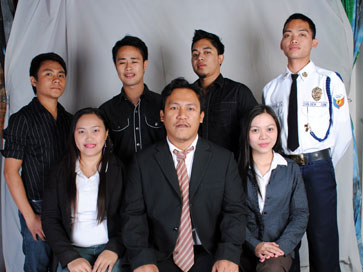
- Bulua Branch
#031 Zone 2, Upper Bulua, Cagayan de Oro City
Tel. Nos. (063) 309-5808
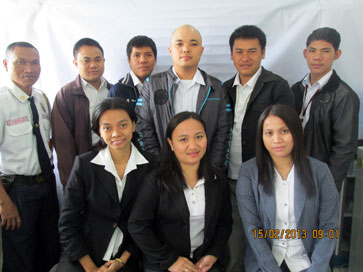
- Manticao Branch
Purok 4, Poblacion, Manticao, Misamis Oriental
Tel. Nos. (088) 583-0127
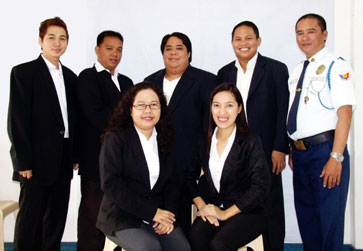
- Tubod LDN Satellite Office
Purok 5, Quezon Avenue, Poblacion, Tubod, Lanao del Norte
Tel. Nos. (063) 341-5424

- Suarez-Tominobo Branch
Zone Gemini, Suarez, Iligan City
Tel. Nos. (063) 225-9830
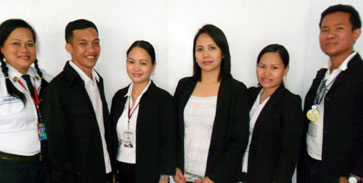
- Butuan Branch
J.C. Aquino Avenue, Butuan City
Tel. Nos. (085) 225-9738
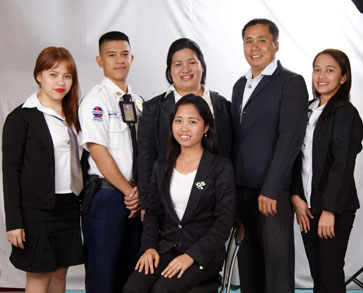
- Butuan - Langihan Branch
Langihan Road, Brgy. 14 Limaha, Butuan City
Tel. Nos. (085) 225-0036
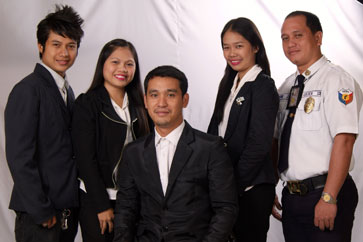
COOP Academy
A.Bonifacio Avenue, Tibanga, Iligan City
Tel. Nos. (063) 221-4036 / 223-7310
Calendar
Downloads
Pakigsayud
- Pakigsayud 2025
- Pakigsayud 2024
- Pakigsayud 2023
- Pakigsayud 2022
- Pakigsayud 2021
- Pakigsayud 2020
- Pakigsayud 2019
- Pakigsayud 2018
- Pakigsayud 2017
- Pakigsayud 2016
- Pakigsayud 2015
- Pakigsayud 2014
- Pakigsayud 2013
- Pakigsayud 2012
- Pakigsayud 2011 - Branch Assembly
- Pakigsayud 2011 - Annual Representative Assembly
Forms / Guides
Cooperative Pledge
As a Filipino
I am and I believe in the Cooperative.
Alone I am weak
But with others I am strong.
So I commit myself to work to cooperate,
For all to be prosperous.
Harmony, industry I will value.
Cooperative affairs I will attend.
Responsibilities I will assume.
The cooperative philosophy I will live.
One vision, one belief, one feeling,
In cooperativism, my life I pledge
So help me God.
